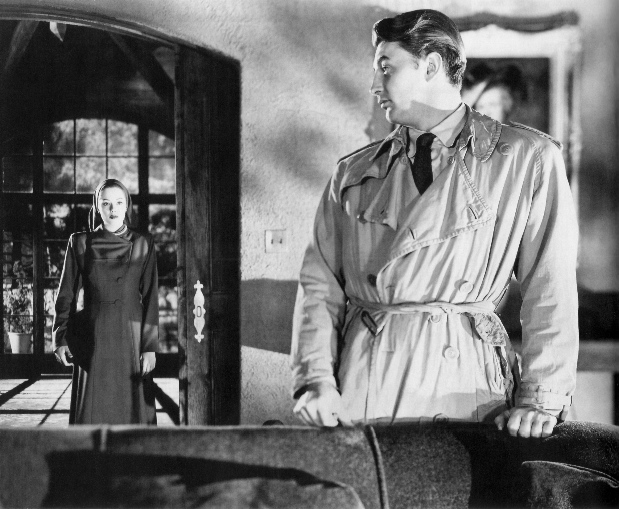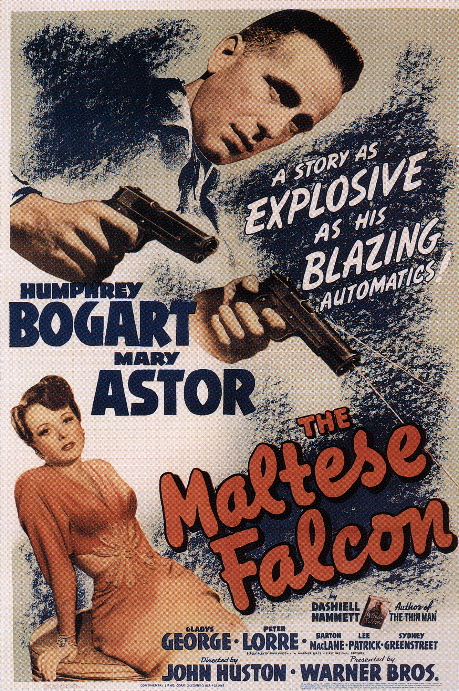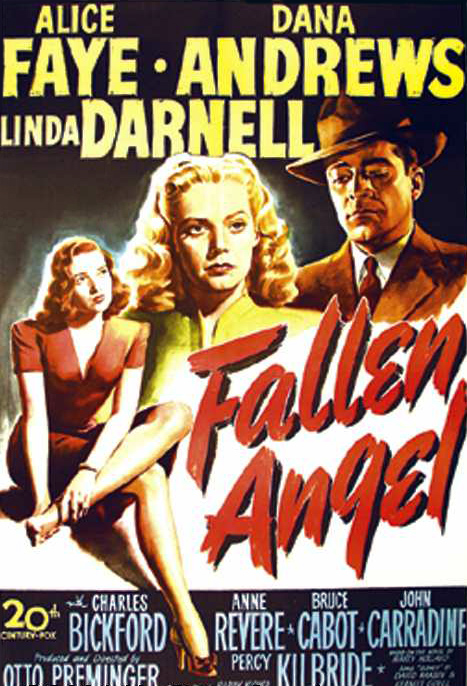
People who love film noir also love to argue about what films belong in the category and what films don't. They compile lists of films noirs and break them down into subcategories. The general drift of this activity is to call almost any film noir
as long as it was made in Hollywood in the 1940s or 1950s, in black
and white, and features moody lighting, cynical attitudes and
some content related to crime.
This inclusiveness is abetted by studio home video departments, which will designate any film with the above attributes a film noir because the label is sexy and apparently helps sell DVDs.
In the process, the term gets so vague as to be useless. I would
argue that there is a core set of films that are truly and uniquely noir,
reflecting a particular time in America, with a particular mind-set, a
mood of existential dread that seemed to invade the American psyche
after the end of WWII, at the beginning of the atomic age.
This sense of dread was in the air before then, of course, as the world
hurtled towards war. It can be felt very clearly in some dark
films made during the war — in Hitchcock's Shadow Of A Doubt, in Wilder's Double Indemnity, in Huston's The Maltese Falcon. The first two of those films, along with Leave Her To Heaven, fall into a distinct category of their own — the domestic noir.

The Maltese Falcon seems on its surface to belong to another distinct category, the hardboiled detective thriller, which had noirish
elements but whose essentially noble protagonist rescued it from
existential dread. Yet Bogart's Sam Spade seems to be losing
faith in the nobility of his code, to see it as meaningless, and I
think that fact alone allows one to call The Maltese Falcon a true film noir. Just compare Bogart's Spade to his Phillip Marlowe in The Big Sleep, which plays like a hardboiled romantic comedy by comparison with Huston's film.
The point about The Maltese Falcon can be argued, of course, and I place it among the true films noirs with that reservation in mind. Here are some of the other films I think of as truly noir, without such reservations:
Out Of the Past
The Killers
His Kind Of Woman
The Dark Corner
The Set-Up
Gun Crazy
Fallen Angel
Angel Face
Touch Of Evil
Detour
The Wrong Man
Criss Cross
The Killing
In A Lonely Place
On Dangerous Ground
Crossfire
Where the Sidewalk Ends
Brute Force
The Sweet Smell Of Success
Night and the City
Thieves Highway
The Lady From Shanghai
14 Hours
The Long Night
Nightmare Alley
Odds Against Tomorrow
Act Of Violence
Crime Wave
They Live By Night
Decoy
The Big Steal
Side Street
Where Danger Lives
Tension
Kansas City Confidential
The Big Combo
Gilda
Note that not all of these films end badly for the protagonist, and not all of them feature femmes fatales — several actually have femmes
that rescue the protagonist, and in one of them the protagonist is
rescued, just as improbably, by Jesus. But in all of them the
protagonist needs rescuing, in all of them he's lost in a nightmare world that's
existentially different from the world that existed before WWII and he can't, by his own efforts, get out of it.
Even a film like His Kind Of Woman, which goofs comically on this world, is also recognizing it.

In future posts I'll list some of the films commonly called noir
which I don't think really are, because, though they may reflect to one
degree or another the same existential dread as the true noir,
they don't acknowledge it as a profound and inescapable condition.
It's almost a spiritual distinction, and therefore hard to
define precisely, but I think it's one worth making.
